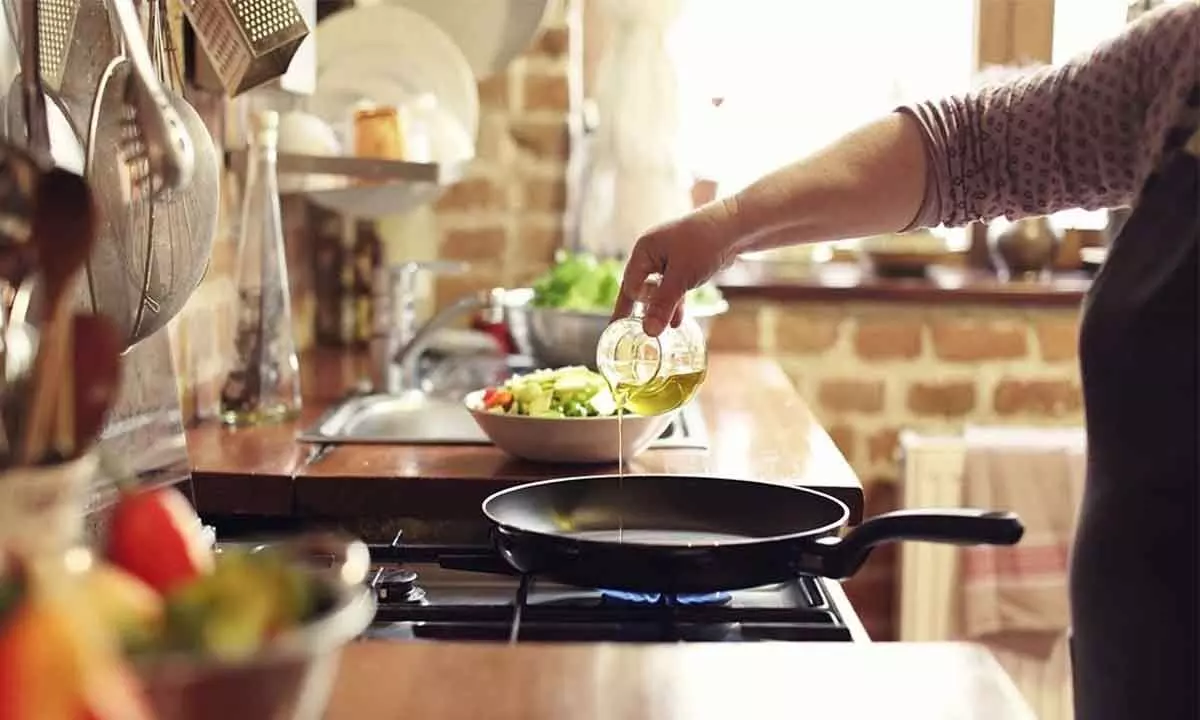Which cooking oil is good anyway?

- Total Polar Material (TPM) is an indicator of degradation of cooking oil. FSSAI norms need to be followed
- TPM below 24-25 is safe for health
- The main danger from cooking oil comes from trans fats which are more worrisome than saturated fats and carry coronary risks
Hyderabad: In times where dining out has become a prevalent practice among the middle class, a major concern has emerged on the culinary landscape. As city dwellers savor the variety of restaurant meals and street food, experts are sounding the alarm about the hidden health risks associated with the frequent reuse and reheating of cooking oils. Adding to the concern is the absence of effective mechanisms to monitor or preempt the use of reheated oil in the food service industry. In this context, we delve into the growing health concerns surrounding reused and reheated oil in restaurants, shedding light on a critical issue affecting citizens' well-being.
“Heating of vegetable oil/fat results in oxidation of polyunsaturated fatty acids leading to the generation of polar compounds which are toxic and may increase the risk of cardiovascular diseases,” says Dr Hemalatha R, Director, National Institute of Nutrition, Hyderabad. As per FSSAI regulations, heated oil containing total polar compounds greater than 25 percent is unfit for human consumption and needs to be discarded. At household level, vegetable oil once used for frying should be filtered and may be used for curry preparation but should be avoided using the same oil for frying. Used cooking oil should be consumed in a day or two. Avoid storing it for a long time as the rate of deterioration is high in used oil.
The main danger from cooking oils comes from trans fats which are more worrisome than saturated fats and carry coronary risks. “These are the fats that cannot be metabolised by the human body as they are unnatural. Humans can only metabolize natural fats and therefore, these fats start accumulating in the body in particular in blood vessels, causing high risk of cardiovascular diseases. This is due to the fact that trans fats increase low density lipoprotein (LDL) levels in blood,” says Professor Sandeepta Burgula, Head, Department of Microbiology, Osmania University.
There are specific types of oils which are better suited for reuse, and they are recommended for safe and healthy culinary practices. “The healthiest oil to cook with is olive oil. It is rich in healthy fats, antioxidants, and polyphenols, all of which have shown protective effects against cancer and liver, heart, and neurodegenerative diseases.
Neutral oils such as vegetable oil, canola oil, and soybean oil can generally be reused more times than more flavorful oils like olive oil or sesame oil,” says Dr Deepa Agarwal, Founder and Consultant Nutritionist, Nutriclinic, Hyderabad
Sunflower and safflower oil possess desirable polyunsaturated fatty acids (PUFA) content and the excess use of these oils make health issues. Use of our traditional cooking oils such as ghee, coconut oil, sesame oil, and mustard oil would actually reduce risk of dyslipidemia, and type -2 diabetes.
Heating of vegetable oil/fat results in oxidation of polyunsaturated fatty acids leading to the generation of polar compounds which are toxic and may increase the risk of cardiovascular diseases
- Dr Hemalatha R, Director, National Institute of Nutrition
The trans fats cannot be metabolised by the human body as they are unnatural. Humans can only metabolize natural fats and therefore, these fats start accumulating in the body in particular in blood vessels, causing high risk of cardiovascular diseases
- Professor Sandeepta Burgula, Head, Department of Microbiology, Osmania University
The healthiest oil to cook with is olive oil. It is rich in healthy fats, antioxidants, and polyphenols, all of which have shown protective effects against cancer and liver, heart, and neurodegenerative diseases
- Dr Deepa Agarwal, Founder and Consultant Nutritionist, Nutri clinic










